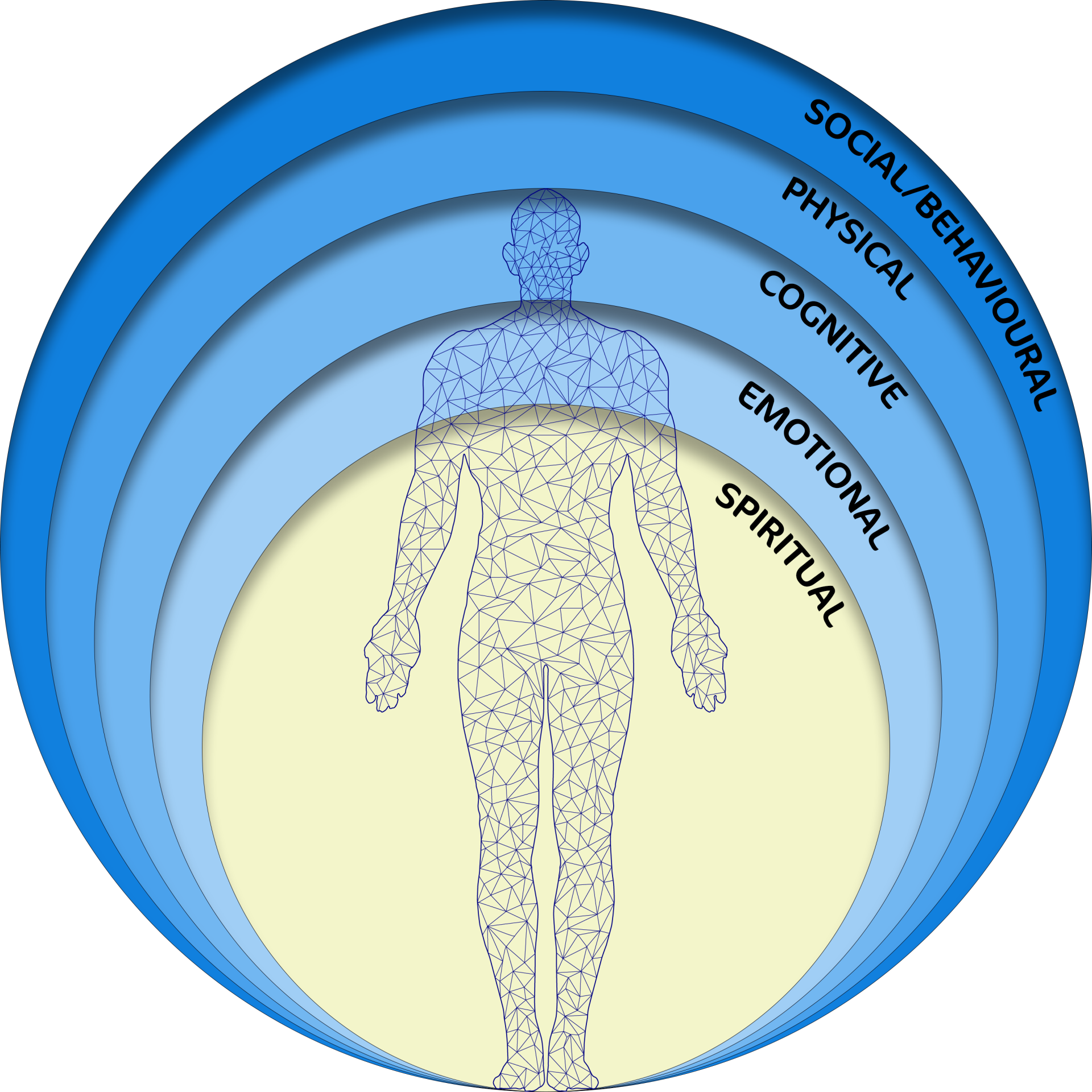Discover Your Life’s True Purpose – Create the New, Extraordinary You!
Use the FLOW Method to transform your existential crisis into a journey of powerful self-discovery to help you find simple answers to life’s hardest questions and build a new, confident and calm you who lives a life of fulfillment and purpose.

What is Existential Crisis?
An existential crisis might feel like you’re standing at a crossroads, except all the signs are unreadable. It usually sneaks up on you after achieving what society deems as success—like establishing a career or building a family. But it can also be triggered by a significant change, such as the loss of someone dear, being faced with a life-changing illness or undergoing professional challenges, shaking the very foundations of your identity. You start asking yourself, “What am I doing with my life? What am I living for?” These aren’t just passing thoughts; they’re profound questions that challenge the meaning and purpose of your existence. This crisis forces you to confront the reality that perhaps, the life you’ve built doesn’t align with your true desires or values.
Impact on Daily Life
Experiencing an existential crisis can profoundly affect your daily life. Symptoms might include a persistent feeling of dissatisfaction, deep bouts of contemplation about life’s meaning, feelings of isolation even when you’re not alone, and a depression as you no longer feel motivated to do activities you once enjoyed. You may also experience anxiety over decisions, big or small, fearing they lack significance. This inner turmoil can lead to sleep disturbances, a change in appetite, or withdrawing from social interactions. When your mind is wrapped around such existential questions, it’s challenging to find joy in the present, negatively impacting your overall quality of life.
How FLOW Method Helps with Existential Crisis
Finding Your True Self
Many of us struggle with identity questions without even realizing it, wondering about our place in the world and who we are at our core. The FLOW Method places identity at its heart, offering insights into the composition and evolution of your self-concept. Through the FLOW Method, you’ll gain a deeper understanding of your true self and the ongoing processes shaping your identity. This clarity is instrumental in navigating life’s challenges and embracing the dynamic nature of your existence.
Reducing the Fear of Death
Fear of death often stems from spiritual distress, a common symptom when we transition from traditional religious beliefs or absence of such to seeking spirituality of our own. The FLOW Method approaches this existential fear by exploring the spiritual dimension of your being, providing insights into the necessity and purpose of fearing death. Seeing this fear as a helpful tool rather than an adversary transforms your relationship with mortality, reducing its grip on you and allowing occasional emotions to pass once they’ve fulfilled their purpose.
Discovering Your Inner Core
The FLOW Method helps you find the center of your existence, showing that true fulfillment doesn’t lie in external achievements, possessions, or relationships, but within your own internal process. It guides you through understanding and engaging with this process, helping to fill the void of emptiness with a profound sense of self-discovery and personal evolution.
Redefining Success and Hope
The FLOW Method assists in overcoming feelings of disillusionment by offering a renewed sense of hope. It challenges you to move beyond societal definitions of success—career milestones or family achievements—and encourages setting new, internal goals. These goals are aligned with your true self and aspirations, detached from the external validations of society. With the FLOW Method, you’ll redefine what success means to you, focusing on personal growth, fulfillment, and the pursuit of a meaningful existence.
Through these approaches, the FLOW Method not only addresses the symptoms of an existential crisis but offers a comprehensive strategy for transformation, allowing you to navigate life with renewed purpose, clarity, and hope.
Benefits of the FLOW Method for Existential Crisis
- Increased Motivation and Drive: Rediscover a passion for life with increased motivation and drive. FLOW unlocks your true purpose, propelling you forward each day with energy and enthusiasm.
- Clarity and a Sense of Purpose: Imagine navigating through life with a clear vision, understanding the meaning and purpose behind your experiences. The FLOW Method helps you become someone who can look ahead, knowing your path and taking it one step at a time.
- Freedom from Negative Emotions: Gain the knowledge to free yourself from the constant grip of negative emotions. With FLOW, you’ll find it easier to let go and not be overwhelmed by anger, anxiety, or other negative feelings.
- Positivity, Calmness, and Focus: Even when the world around you seems chaotic, the FLOW Method helps you to remain positive, calm, and focused. You’ll develop a new perspective, seeing events for what they truly are, without unnecessary distress.
- Decision-Making Clarity: Make decisions with confidence, knowing they align with your life’s goals and purpose. The FLOW Method brings clarity to your choices, ensuring they contribute to your overall vision.
- Improved Well-Being and Satisfaction: Enjoy the inner peace that comes from knowing you’re on your true path. FLOW fosters a deep sense of well-being and satisfaction with life.
- Enhanced Resilience: Develop a robust inner strength that allows you to face life’s challenges without fear. The FLOW Method enhances your resilience, preparing you to meet obstacles head-on with courage and determination.
By integrating the FLOW Method into your life, you’re not just overcoming an existential crisis; you’re transforming your entire being, aligning with your true purpose, and unlocking a life of profound meaning and joy.
Cognitive Behavioral Therapy (CBT) – focuses on identifying and changing negative thought patterns and behaviors that contribute to existential distress.
Advantages: It offers practical tools to manage symptoms of anxiety and depression linked with existential crises, making it easier to navigate daily life.
Disadvantages: CBT may not delve deeply into the root existential questions, potentially leaving some deeper concerns unaddressed. Its structured approach might not resonate with individuals seeking more profound existential answers.
Psychoanalysis – delves into past experiences and unconscious thoughts to understand and resolve deep-seated existential concerns.
Advantages: It provides a comprehensive exploration of a person’s psyche, potentially uncovering the root causes of their existential crisis. Psychoanalysis offers a personalized therapy experience, tailored to the individual’s unique psychological makeup.
Disadvantages: It requires a significant time and financial commitment, which may not be feasible for everyone. The process can be lengthy, with results and insights developing slowly over time.
Existential Therapy – existential therapy focuses directly on concerns about meaning, choice, freedom, and mortality, encouraging individuals to confront these issues head-on.
Advantages: This approach encourages self-exploration and living authentically according to one’s values.
Disadvantages: The abstract nature of existential therapy may not provide the concrete coping strategies some individuals seek. It can also lead to increased introspection, which might initially heighten feelings of distress.
Life Coaching – life coaches work with individuals to clarify their goals, overcome obstacles, and make changes to improve their lives.
Advantages: Offers practical and actionable steps towards personal and professional fulfillment, potentially alleviating existential concerns.
Disadvantages: Life coaching may not address deeper psychological issues that contribute to an existential crisis.
Mindfulness and Meditation Programs – these practices encourage living in the present moment and can help individuals detach from existential worries.
Advantages: Mindfulness can reduce symptoms of anxiety and depression, providing a sense of peace and grounding. It’s accessible to everyone and can be practiced independently.
Disadvantages: For some, these practices might serve as a temporary escape rather than a solution to existential questions. They may not provide the deep answers or sense of purpose individuals are seeking in the midst of a crisis.
Compare the FLOW Method to Traditional Approaches:
True Solution Vs Symptom Management:
Unlike Cognitive Behavioral Therapy (CBT), which primarily focuses on managing symptoms and coping with daily life, the FLOW Method aims for more than just surface relief. The ultimate goal is to dive deep into the root causes of your existential crisis, providing profound and lasting change.
Future Focused Vs Past Focused:
Unlike psychoanalysis, FLOW is not anchored in the past. Instead, it encompasses your past, present, and future, offering a comprehensive view of your life journey. FLOW works with what is known and consciously accessible to you, without the need to delve into the subconscious. This approach ensures a balanced perspective that encourages growth and understanding throughout all stages of your life.
Time-Efficiency Vs Long-Term Commitment:
Committing to psychoanalysis can be daunting due to its significant time and financial demands. FLOW, however, is structured to be more accessible, requiring neither a long-term commitment nor a hefty financial investment. This makes it easier for you to engage with the method and experience its benefits.
Dynamic Vs Static Personal Values
In contrast to existential therapy, which may treat your personal values as static, FLOW understands that you are constantly evolving. It recognizes that your values change as you grow, and helps guide you on the path of discovering your values, their hierarchies and how to balance those values that seem to be opposites of each other.
Narrow Vs Comprehensive Focus:
Compared to life coaching that might focus on achieving specific goals in areas such as your career, relationships or health, FLOW addresses the entirety of your being as you interact with the world. It’s not about setting and achieving isolated goals but about understanding and evolving your whole self in relation to the universe.
More About FLOW Method for Existential Crisis
Addressing Existential Crisis and Beyond
The FLOW Method was created to help those struggling with not just existential crises but also accompanying challenges such as anxiety, depression, suicidal thoughts, PTSD, anger, and other mental health issues. An existential crisis rarely walks alone; it’s often shadowed by many thoughts and emotions that can overwhelm the strongest of us. If you find yourself questioning the very foundation of your existence, know that FLOW is designed to provide comprehensive support and guidance through these tumultuous times.
Engaging All Levels of Being
Humans are intricately complex beings, far from the simplicity of machines with interchangeable parts. To address any one aspect of our existence, FLOW Method advocates for a comprehensive treatment that encompasses our entire being. This method uniquely touches upon all five levels of human existence: Physical, Emotional, Cognitive, Social, and Spiritual. Unlike other therapies that might focus on isolated symptoms or areas, FLOW understands that to truly heal or find resolution, we must consider the whole person. This comprehensive approach is key to finding balance and wellness amidst the storms of an existential crisis.
Spirituality and the FLOW Method
At the heart of many existential crises are questions that tread into the realm of spirituality. The FLOW Method distinguishes itself by openly embracing spiritual level questions and explorations, something conspicuously absent in many contemporary therapeutic approaches. Whether you’re wrestling with questions about the meaning of life, the existence of a higher power, or the purpose of your own journey, FLOW provides a safe and inclusive space to delve into these profound inquiries, offering guidance and support as you navigate these existential waters.
Dealing with Root Causes of Issues
Unlike conventional treatments that often focus on symptom management, the FLOW Method digs deeper to unearth and confront the root causes of your existential crisis and accompanying mental health challenges. This approach ensures that the solutions are not just temporary fixes but are aimed at genuinely resolving the underlying issues. By addressing these core concerns, FLOW paves the way for a more authentic and enduring transformation.
Exploration of Identity
Central to the FLOW Method is the exploration of identity, crucial for anyone undergoing an existential crisis. Questions like “Who am I?” and “What is the purpose of my life?” are not just acknowledged but are explored as a vital part of your journey to wellness. FLOW helps you navigate these questions, offering a framework to construct a new sense of self. This process of discovery and transformation empowers you to turn your existential struggles into a source of personal empowerment, ultimately leading to a more fulfilling and balanced life.
7-Week Group Course
Your journey begins with a 7-week group course where you, together with other 10-12 participants will work on expanding your levels, building your trauma-resolution tools and practicing the techniques of the method in a safe and supportive environment. Your instructor will guide you through helpful exercises and 'case-study' type of scenarios where you can practice using the skills you've learned before applying them to your own life.
Embracing Your New Tools: Transforming Your Life
After completing the 7-week group course, you are now equipped with the personal trauma-resolution tools you've developed and the techniques you've learned. Now, it's time to apply these tools to resolve your past traumas, one by one, using the FLOW Method. With each trauma you address, you will start to feel better and experience the transformative benefits of the method. Your journey to freedom has just begun, and you will continue to grow and heal, gaining strength and resilience with each step.
Teaching Opportunities
If you're inspired by your transformation and wish to help others, there's an opportunity to become an FLOW Instructor. This allows you to share the powerful impact of the FLOW Method and assist many others who are struggling with mental health issues.
Frequently Asked Questions about FLOW for Existential Crisis
1. As someone who isn't religious, I'm curious about the spiritual aspects of the FLOW Method. How does it approach spirituality without leaning on religious beliefs?
Religion is typically associated with specific beliefs and practices within a community context, while spirituality is a broader, more individual exploration of meaning and connection with the universe. The FLOW Method embraces this latter perspective, emphasizing the importance of keeping an open mind and actively discouraging the act of believing or disbelieving in anything. This approach ensures that participants use their minds to their fullest capacity, exploring possibilities without the constraints of preconceived notions.
2. I've tried various therapies to cope with my existential crisis, but nothing has seemed to work. How is the FLOW Method different, and how can it help where other approaches haven't?
The FLOW Method equips you with tools to transcend the binary thinking, for example of ‘good’ versus ‘bad’ and does so in a very practical, dynamic way. It guides you to a higher vantage point, from which the complexities of life can be explored and experienced freely. This approach fosters a profound self-discovery and liberation, offering you a pathway to address your existential crisis in a much broader way than other methods.
3. My existential crisis was triggered by the death of a loved one. How can the FLOW Method help me find meaning and purpose again in the face of such loss?
The profound loss of a loved one can indeed trigger the ultimate form of grief, leading you into an existential crisis. This type of grief is an intense experience that can deeply affect you, prompting you to question the very fabric of your existence, the purpose of life, and its worth after such a significant loss. It’s both normal and common to find yourself grappling with these deep, existential questions during such a challenging time.
Before your loss, you might have had a clear set of ideas about what gives life meaning and purpose. The death of a loved one can shatter these concepts, plunging you into a crisis as you struggle to find new meaning in a world that suddenly seems devoid of it. This is where the FLOW Method steps in to offer guidance and support.
The FLOW Method acknowledges the depth of your grief and the profound questions it raises. It doesn’t offer platitudes or simple fixes but instead guides you on a journey to rediscover meaning and purpose from a new perspective. This method helps you see that the meaning of life isn’t tied to external factors—be it your job, career, family, or even your children. Instead, it directs you to the very core of existence, to understand the ultimate purpose of your life and the events within it, including the loss you’ve experienced.
Through the FLOW Method, you’ll embark on a transformative journey to find a renewed sense of meaning that transcends external circumstances. It offers a new way of looking at life’s events, helping you to find purpose in your existence that is deeply personal and inherently fulfilling. This process is about building a foundation of understanding and peace that will support you as you navigate through your grief and beyond, towards a life filled with new meaning and purpose.4. I'm struggling with depression and a profound feeling of emptiness. Can the FLOW Method help me fill this void and rediscover joy in life?
Feeling of emptiness and a profound void can be unsettling, but it might not be as negative as it seems. In today’s society, bombarded by social and mass media, there’s a pervasive sense that we ‘know it all.’ But when you’re in this state of ‘knowing everything,’ there’s no room for new insights. From this angle, feeling empty could be seen as an advantage—you’re in a more receptive state, ready to discover and absorb.
Often, this emptiness stems from disillusionment. You find yourself disinterested in the pursuits that society values—acquiring the latest gadgets, chasing promotions, or the endless cycle of consumption doesn’t spark joy for you anymore. You’re searching for something more, something beyond the material world that can fill this void with true meaning.
The FLOW Method recognizes that the answer doesn’t lie in the external world but within ‘you.’ The real ‘you’ is yearning for significance that transcends material possessions or societal achievements. The FLOW Method is designed to guide you on a journey of self-discovery, helping you create your new unique self.







